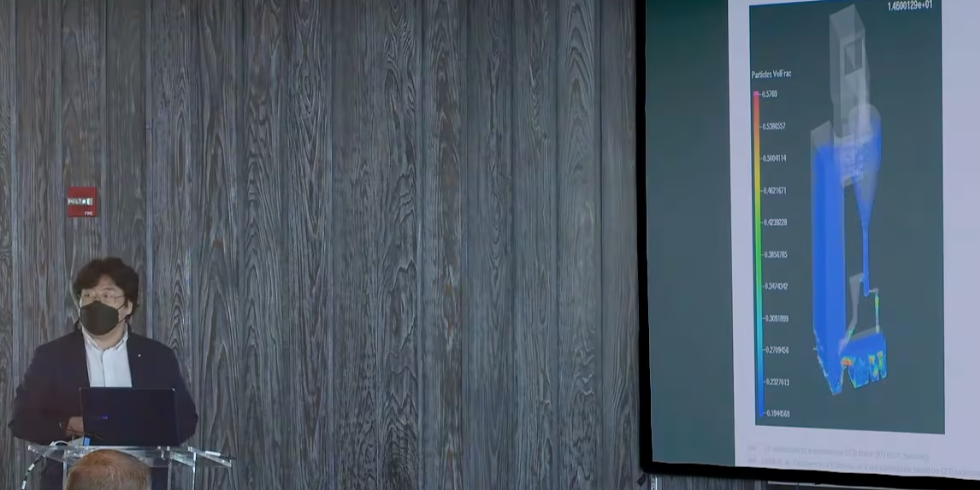Also available on Youtube.
About This Presentation
Presented by
Uendo Lee of Korea Institute of Industrial Technology at the 2022 Barracuda Virtual Reactor Users’ Conference.
Summary
Eulerian-Lagrangian methods such as the MP-PIC model and CFD-DEM can effectively simulate the fluidized bed phenomenon, enabling 3D calculations of fluidized bed boilers at reasonable computational costs. However, the development of numerical analysis technology through excellent models and the precise determination of a fluidized bed boiler’s operation and boundary conditions dealing with solid combustion are different issues. It is often difficult to accurately define the flow rate of solid fuel and oxidizer, heat transfer conditions inside the boiler, the amount and properties of various solids in the boiler, and the results of 3D simulation based on such inaccurate information are unreliable. Therefore, to increase the reliability of numerical simulation, an ‘accurate problem definition’ that reflects the actual situation as much as possible is essential. Most calculation conditions issues can be solved through rigorous measurement of the experimental conditions. However, the difficulty in securing clear information on particles starts from the limitation that it is not easy to sample representative particles and encounters the inherent limitation of not being able to measure the properties of particles that change during the reaction. This problem can be solved by checking the operation and boundary conditions required for 3D simulation in advance by using 1D simulation to examine the effects of various variables with a short calculation time. In particular, 1D simulation equipped with a model that can closely evaluate attrition and fragmentation that can affect particle properties can significantly reduce errors in calculating important hydrodynamics in a fluidized bed reactor. In this study, we present a strategy for improving the accuracy of 3D simulation using 1D simulation for CFB boilers.
About the Speaker
Uendo Lee received a PhD in Mechanical Engineering from Korea Advanced Institute of Science and Technology (KAIST) in 2005 and has been working at Korea Institute of Industrial Technology (KITECH) since 2008. Uendo is involved in numerous projects spread across both the experimental and computational domains, with the reacting flow as a commonality. His current interests are multiphase flows, thermochemical conversion of biomass, CO2-free hydrogen production, simulation of a large CFB boiler, and liquid metal system.

